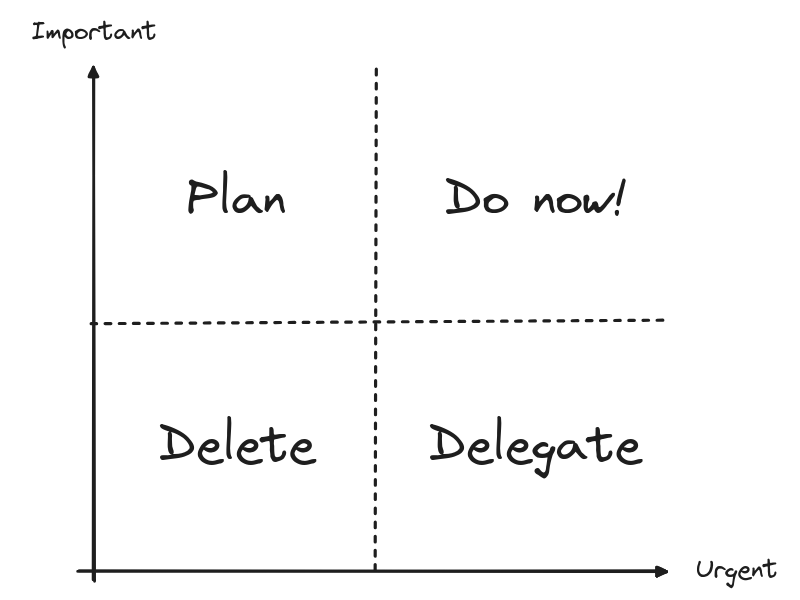Cultivate your motivation

Hi there, it's Nicolas! A few days ago, during a conversation with a younger entrepreneur I had just met at an event, he asked me:
How do you stay motivated, especially over the long term?
He shared his difficulty in maintaining motivation. How it would eventually fade away and not reappear when faced with the amount of work to be done or the difficulty of a task to overcome.
Before diving into the topic and sharing the various strategies I've implemented over the years to keep my motivation in all circumstances, I wanted to share some great news: our company (Grezy) is almost up and running! There is one last step that needs to be completed by the french administration before we finally get our business registration.
If you want to follow our adventures, I invite you to subscribe to this newsletter, which we try to publish weekly.
The prerequisites for motivation
Motivation comes and goes in a relatively cyclical manner, I don't think I'm teaching anyone anything new. It can also be stimulated spontaneously, for example, by a motivational video on YouTube. But the question that interests us is:
How to stay motivated over the long term?
The starting point of motivation is its source. When you are motivated after watching a YouTube video, that video is the source of your motivation. But it is a source of motivation that dries up after a few days, or sometimes even a few hours, when the difficulty is significant.
Therefore, it is crucial to have a clear and precise objective. By "clear", I mean that this objective explicitly answers the question of why: you need to know why you are trying to achieve this objective. And as Simon Sinek would say: always start with the why. The term "precise" indicates that the objective must be measurable. For example, at Grezy, we aim to have three companies as regular clients by the end of the year. The measurement scale can differ depending on the person and the task.
Moreover, if your objective has direct benefits, they constitute an additional source of motivation. Imagine you want to run a marathon, an objective that requires a lot of preparation, both physical and mental, and will inherently require self-transcendence. However, if you run this race to raise money for a charity, it will give you an additional good reason to achieve this objective. In this case, the latter has direct benefits: helping others.
Once you have found your objective in a clear and precise manner, you need to define the path to follow. That is, a series of 3 to 5 major steps to go from where you are today to your objective. The idea behind this is to have a course to follow and not get lost in the limbo of things to do.
Strategies to manage your motivation
I will give you different strategies to help you better manage your motivation. The idea is not to substitute motivation with discipline, as some people tend to advocate for. I do not believe that replacing motivation with discipline is very effective, especially since you lose everything if you cannot sustain it over time: if you lose your discipline, you are left with neither motivation nor discipline.
I prefer, on the contrary, to learn to cultivate motivation in order to build a virtuous circle. It is action that is at the origin of motivation, and not the other way around, as common belief tends to make us think.
Selecting your tasks well
The first strategy consists of selecting your tasks well. To do this, make a list of all the elements you need to accomplish next. Don't tell yourself "I'll do it later," you won't, so do it now. Once it's done, take your list, which is probably composed of a dozen items, and pass them one by one through the Eisenhower Matrix.
- If the task is urgent and important, do it now.
- If the task is important but not urgent, plan it.
- If the task is urgent but not important, delegate it. If you can't delegate it (for example, you have no one to delegate to), then you'll have to do it once you've done all the urgent and important tasks.
- If the task is neither important nor urgent, then eliminate it.

I have too many tasks and not enough time, what should I do?
In this case, you need to be more radical in selecting your tasks. Choose one task (just one), that you absolutely must do. Find the task that is more important than all the others.
Once you have it, leave the other tasks and focus solely on that one.
Good task selection helps avoid losing our motivation under an avalanche of things to do.
Newton's law
The secret of the second strategy lies in Newton's second law. This law implies that if a body is in motion and there is no friction (for example, in space), it will continue in perpetual motion.
The most complicated part for us is to get moving, that is, to get into action (which, I remind you, will generate motivation).
To do this, start small. It is always easier to set a body of low mass in motion. It is indeed easier to push a small pebble than a car. Choose a small and easy task to accomplish. Focus solely on this task and on no other, and complete it. There you go! You've done the hardest part, and can now continue on with your momentum.
On my end, I use this strategy to do the dishes, among other things. It's an activity I often don't like to do (you'll probably recognise yourself here). I tell myself: "I'll wash one fork". Clear, precise, and easy-to-execute objective. Once this fork is washed, I'm on a roll, hands in the dishes, I take advantage of it to do the rest while I'm at it.
Always have a task to accomplish
Once you've finished your work, it's important to know what you'll do next time. Having something to do that you care about will encourage you to get back to work the next time. In addition to helping you get into action, this constitutes an additional source of motivation.
Conclusion
You are now equipped with all the necessary tools to cultivate your motivation:
- a clear and precise objective
- a guideline
- good methods for task selection (using the Eisenhower Matrix or the Pareto Principle)
- a simple way to start taking action (Newton's second law)
Remember, your motivation comes from action, not the other way round!
In the next article, I will dive into methods to "get things done" and how to be really effective.





